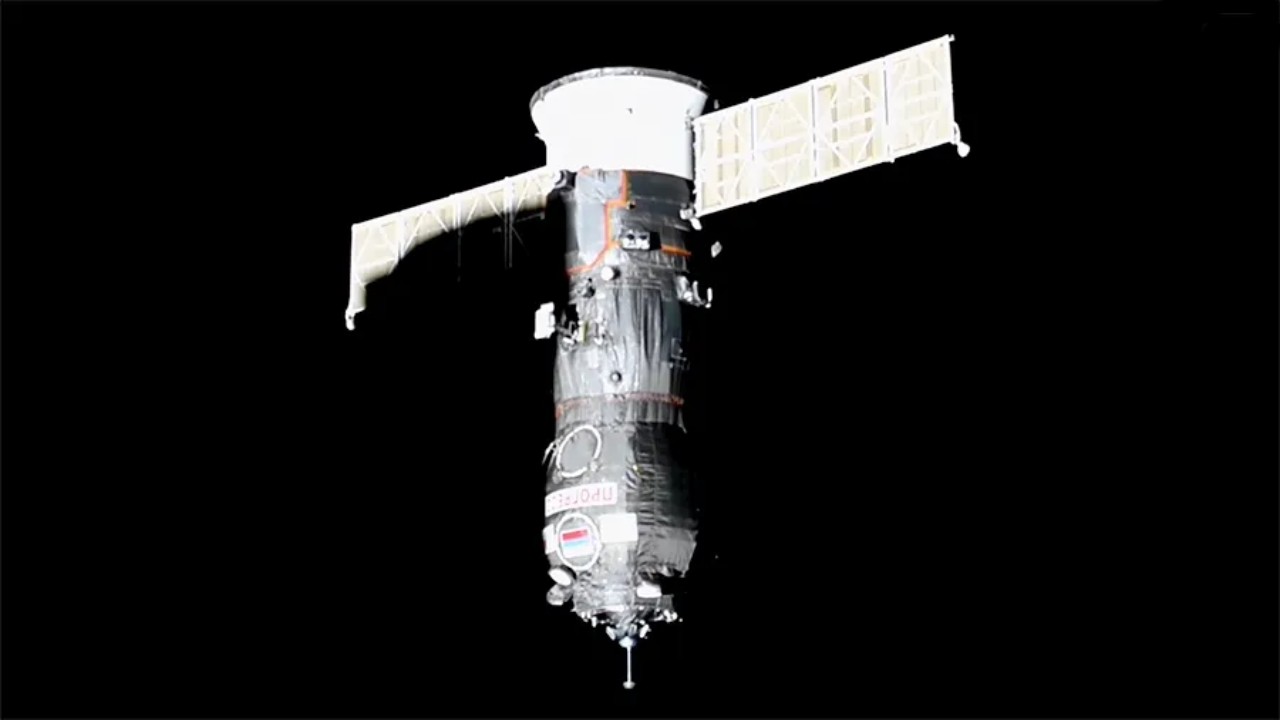
Astronauts found an "unexpected odor" after trying to open the door to a new cargo spacecraft at the space station, according to NASA.
A Russian Progress spacecraft docked at the International Space Station on Saturday (Nov. 23) at the Russian Poisk module after its launch on Nov. 21. But astronauts couldn't keep the spacecraft hatch open for long to retrieve fresh food, supplies and equipment due to a stench coming from the capsule.
"After opening the Progress spacecraft's hatch, the Roscosmos cosmonauts noticed an unexpected odor and observed small droplets, prompting the crew to close the Poisk hatch to the rest of the Russian segment," NASA officials wrote on X, formerly Twitter, on Sunday (Nov. 24). The crew is not in danger and efforts to open the spacecraft are ongoing, the agency stressed.
Related: Russian Soyuz rocket launches supplies to ISS on 90th Progress cargo spacecraft (video)
After Russian cosmonauts closed the hatch, air scrubbers and contaminant sensors on the ISS "monitored the station's atmosphere" and flight controllers said the air quality of the ISS "was at normal levels," NASA noted.
The Russian cosmonauts who opened the hatch to the Progress spacecraft briefly wore extra protective equipment as a precaution, RussianSpaceWeb stated; journalist Anatoly Zak was monitoring the communications between Mission Control in Houston and the ISS on Saturday.
NASA astronaut Don Pettit reported a "spray-like smell" in the Tranquility or Node 3 module in the U.S. segment, but Zak noted it was unclear if that smell came from the Progress spacecraft. Node 3 is not directly connected to the Russian segment.
Also, by coincidence, the hatch between the Russian side and the U.S. side of the space station is often closed these days anyway. That is because of an ongoing air leak on the Russian side that has been happening for five years. NASA has stressed the leak is not an immediate danger to the crew, but NASA and Roscosmos disagree as to the leak's cause and remedy and whether it poses a longer-term critical risk to the ISS integrity.
Progress is expected to remain docked with the space station for several months before departing in 2025 with a load of trash and other unneeded items, to burn up in Earth's atmosphere.
Other Russian ships have faced coolant leaks in recent years, most dramatically an incident in December 2022 in which a Soyuz crewed spacecraft leaked so much coolant that Roscosmos eventually sent up a replacement to send three astronauts back home, doubling their six-month stay to a year. Another Progress cargo spacecraft had a coolant leak two months afterwards, in February 2023.
There is no immediate link between these past incidents and the ongoing Progress situation, however.







